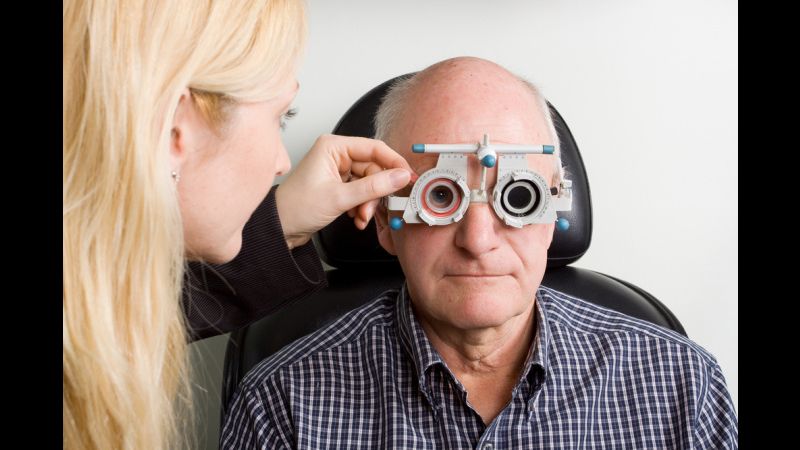While many people think that it’s typical to develop eye problems and lose vision as you age, that can be a dangerous assumption when it comes to glaucoma. Glaucoma currently affects about 4 million people in the United States, many of whom are not aware they have the disease. When left untreated, glaucoma can lead to permanent blindness, which happens to approximately 10 percent of those living with glaucoma who do not receive adequate treatment.
National Glaucoma Awareness Month seeks to educate people about the signs and symptoms of glaucoma in order to create awareness and prevention of further deterioration of vision. Here is what you should know when it comes to glaucoma:
What Is Glaucoma?
Glaucoma is actually the umbrella term for a group of diseases that cause serious eye problems. The diseases that fall under the Glaucoma banner include:
- Primary Open-Angle Glaucoma: As the most common form of glaucoma, primary open-angle glaucoma occurs when the drainage canals become clogged and fluid builds up in the eye.
- Angle-Closure Glaucoma: Also known as narrow angle glaucoma or acute glaucoma, this type of glaucoma is more rare than primary open-angle and more aggressive. The main culprit with angle-closure glaucoma is a small iris opening, which causes quick blockage of the drainage canals causing eye pressure to build very quickly.
- Normal-Tension Glaucoma: When you have normal-tension glaucoma, high-pressure build up in the eye is not the issue, rather the main concern is optic nerve damage. People of Japanese descent and those with a history of heart disease are most at risk for this type of glaucoma.
- Rare Forms of Glaucoma: More rare than the three types of glaucoma listed above, the following eye problems are also forms of glaucoma: Secondary Glaucoma, Pigmentary Glaucoma, Pseudoexfoliative Glaucoma, Traumatic Glaucoma, Neovascular Glaucoma, Irido Corneal Endothelial Syndrome, Childhood Glaucoma
The primary concern for ALL types of glaucoma is ultimately permanent blindness. Knowing the signs and symptoms to look for, along with regular visits to an ophthalmologist, can help to keep glaucoma at bay.
What Are Glaucoma Symptoms?
There are, of course, glaucoma symptoms to look for aside from blindness that can serve as a trigger to call your doctor and ask for help. These symptoms include:
- Blind spots in your peripheral vision, frequently and in both eyes
- Tunnel vision
- Severe headaches
- Eye pain
- Nausea and vomiting
- Blurred vision
- Seeing “halos” around lights
- Eye redness
If you are exhibiting any of these glaucoma symptoms your ophthalmologist can run some tests to determine the proper diagnosis. Visual acuity or field tests use the standard eye charts to determine the levels for both distance and peripheral vision. A dilated eye exam will allow your doctor to look at both your retina and optic nerve to check for signs of damage. Be aware, however, that in order to dilate your eyes, your doctor will put drops in your eyes that will probably blur your close-up vision for several hours after the exam. Additional testing methods also include tonometry, which measures the pressure inside your eye, and pachymetry, which measures the thickness of your cornea.
Is There Glaucoma Treatment?
Unfortunately, there is not currently any type of glaucoma treatment that can cure or reverse the symptoms. There are, however, some options available for the management of your glaucoma and prevention of eventual blindness.
The following glaucoma treatments have proven to be successful in keeping additional eye problems at bay:
- Medicine. Medicinal glaucoma treatments include eye drops, pills, and in many cases, medical marijuana. In fact, both Whoopi Goldberg and Roseanne Barr have admitted to using medical marijuana to keep their glaucoma symptoms at bay.
- Laser Trabeculoplasty. Should you need more than just medicine, your physician may recommend a laser trabeculoplasty, in which a high-intensity beam of light is used to help drain the fluid from your eye. Typically, this type of laser surgery is done in your doctor’s office rather than a hospital and only one eye can be done in a single visit.
- Conventional Surgery. As a last resort, your ophthalmologist might suggest performing a trabeculectomy in order to drain the fluid from your eye. While this type of procedure has to be done in an operating room, it has been proven to be more effective--and long-lasting--than the laser surgery.
What Can I Do About Loss Of Vision?
Eye problems can lead to larger health problems, especially if they lead to falls and injuries. With a Medical Guardian medical alert system, you can rest assured knowing that you’ll always have access to help should you need it. Medical Guardian is here to adapt with you, ensuring support and confidence as your needs evolve.


